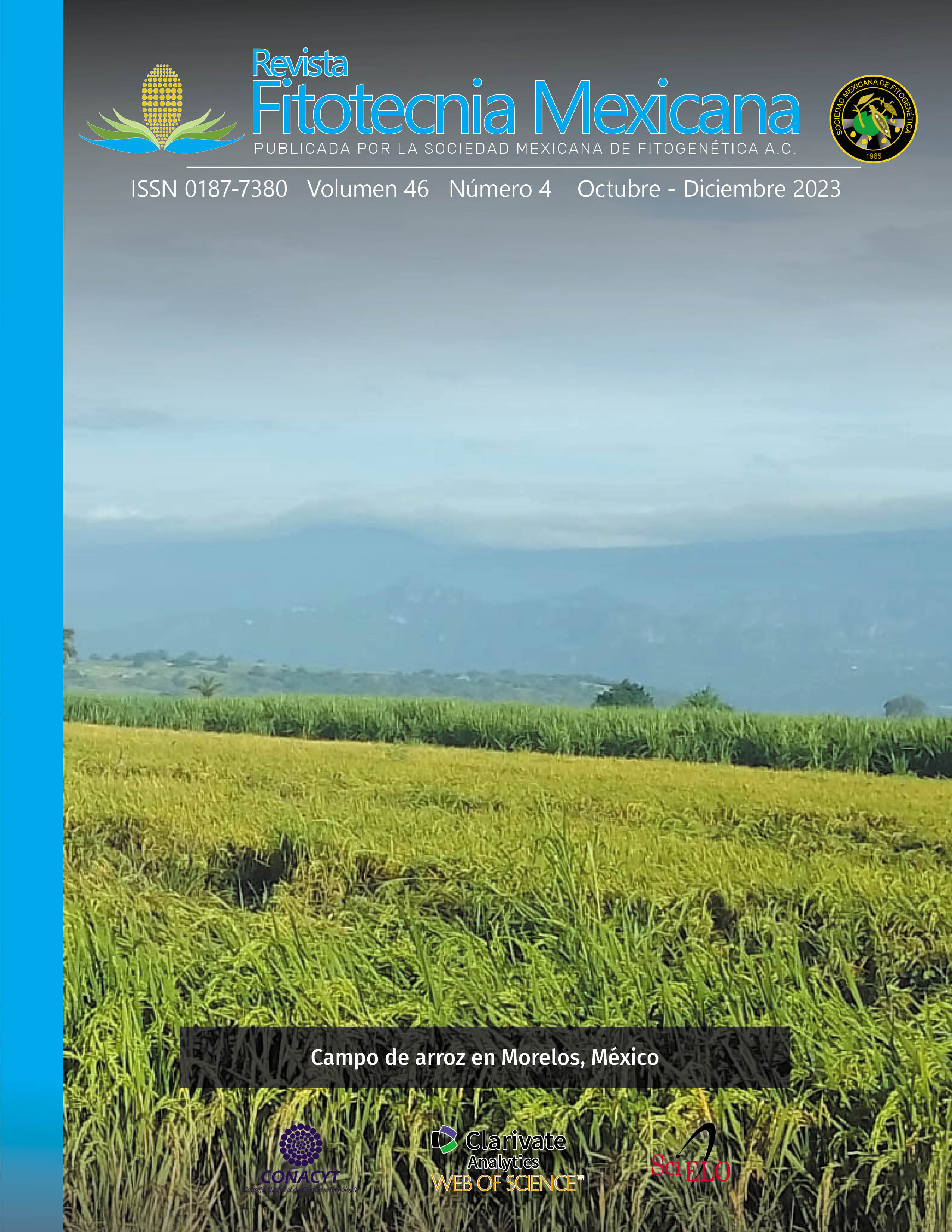PERFORMANCE OF SALADETTE TOMATO LINES WITH DETERMINED GROWTH HABIT IN GREENHOUSE
Main Article Content
Abstract
Tomato (Solanum lycopersicum L.) is a crop of great economic and social importance in Mexico; however, the generation of new national varieties is scarce. The objective of this research was to evaluate the agronomic and quality potential of fruits of 53 F5 saladette-type lines of determined growth habit tomato, derived from native populations, in a hydroponic and greenhouse system, for possible commercial use and genetic improvement. For this purpose, the lines and the commercial variety Rio Grande were evaluated during two production cycles (years 2020 and 2021), in a randomized complete block experimental design with three replications. Phenological information, physical characteristics and fruit quality were recorded, as well as the number and total weight of fruits per plant. Analyses of variances were carried out as series of experiments, also, comparisons of means (Tukey, P ≤ 0.05) and Pearson correlations analysis were performed. Differences (P ≤ 0.05) were detected between lines in days to flowering and maturity, length, diameter, weight, firmness, soluble solids content, number and total weight of fruits. Outstanding lines were identified in earliness, yield and fruit quality variables that make them suitable for fresh consumption and industrial processing. Line 21002 was superior to the commercial variety Rio Grande (P ≤ 0.05) with 38 % more yield, which could be used as a new commercial variety or as a source of germplasm.

